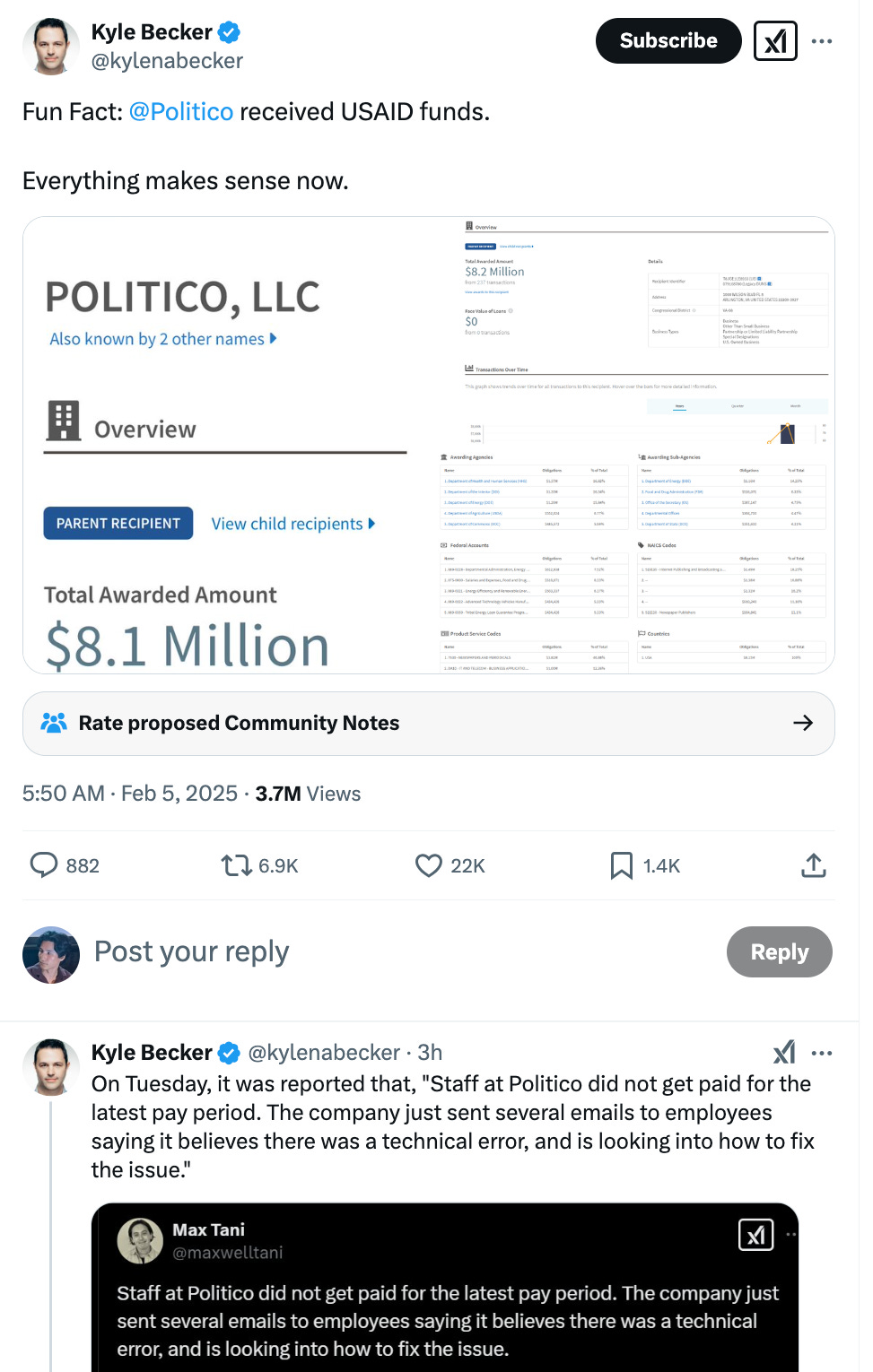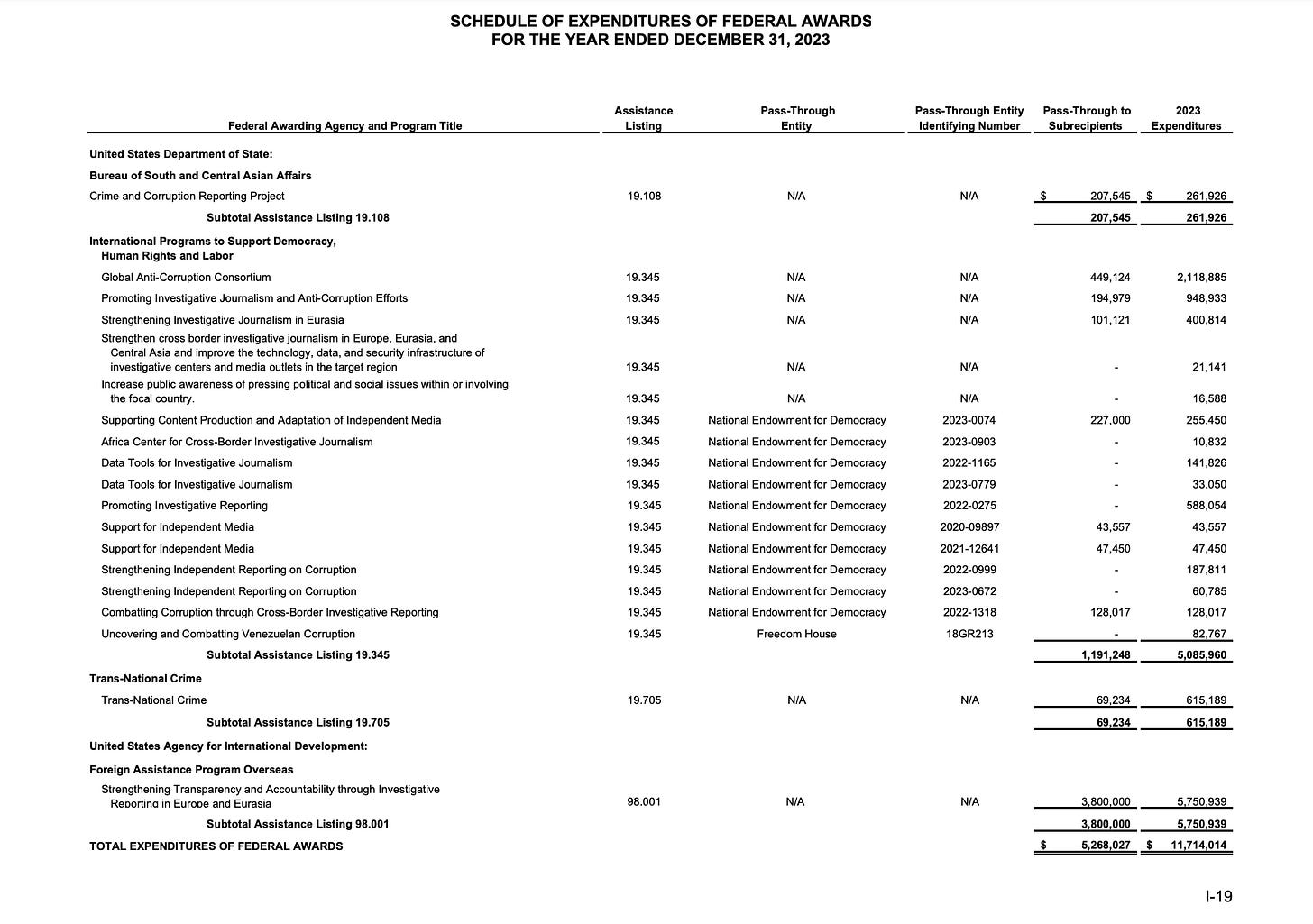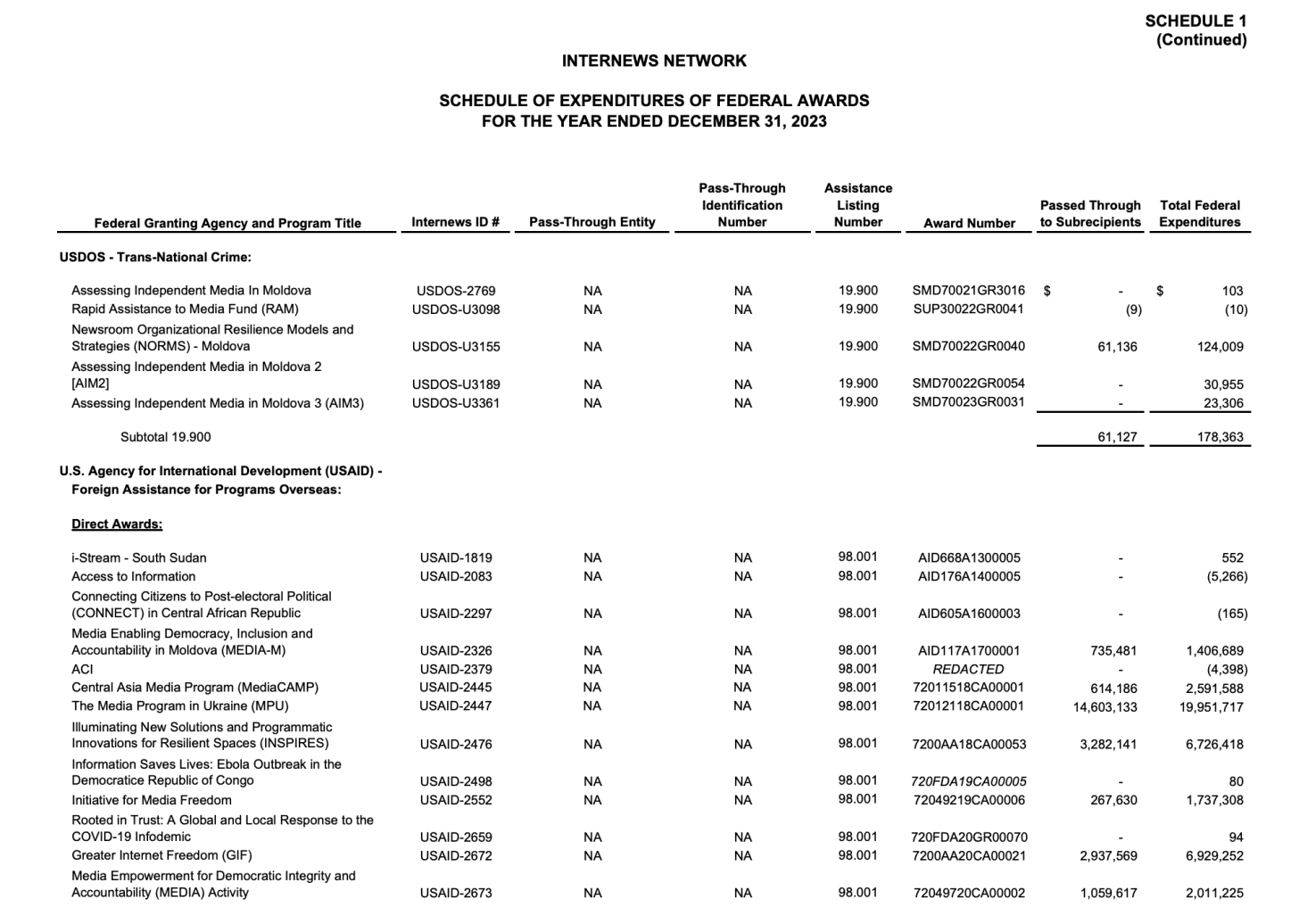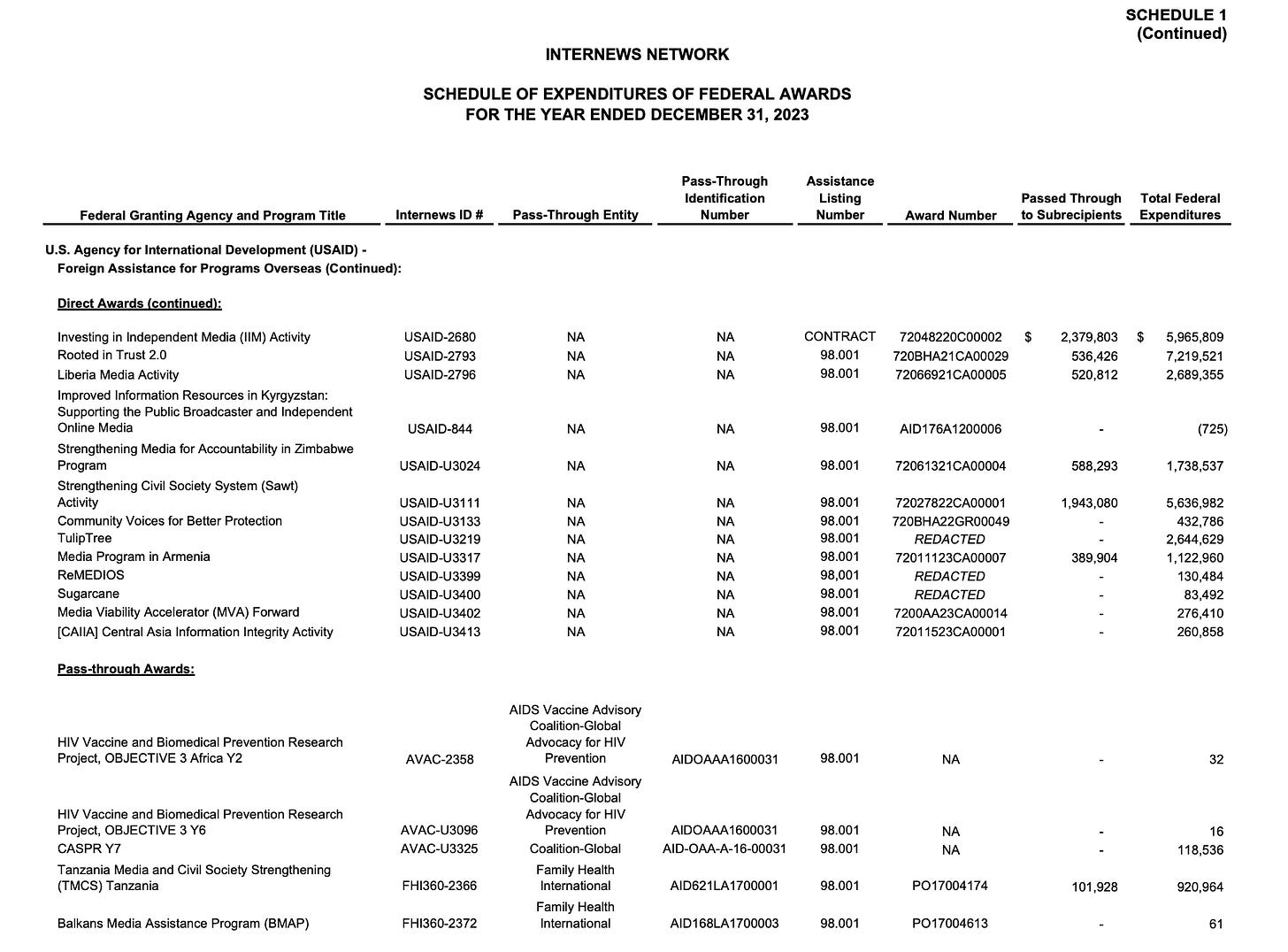USAID Funded Journalism Needs Scrutiny. Viral Claims Attacking Politico Are False
The U.S. government helps operate a shadow network of "independent news" sites around the world. Politico is not one of them.
This morning, I woke to several friends and readers asking me about viral social media claims from last night regarding USAID and Politico. The conspiracy theory suggested that ongoing spending cuts at USAID, the foreign aid agency, were shutting down domestic media outlets supposedly dependent on government money. As evidence, several large accounts noted that Politico personnel had failed to receive payroll. Politico management, in an email, attributed the issue to a "technical error" that would be fixed shortly. Yet many suspected a direct connection. Here is one of many viral tweets making this claim:
This is wrong on many counts. USAID contract records show that the agency spent a grand total of only $44,000 – not the $8.1 million claimed in viral tweets – on Politico, LLC for subscription services.
For context, Politico operates two forms of news services. General political news content is published on the Politico website and its email lists for free, supported by advertising. For sophisticated readers (business executives, lobbyists, and government agencies), Politico provides paywalled "pro" subscription services that cost over $10,000 per login for up-to-the-minute, detailed reporting on policy decisions and regulations. The government pays for this information, and Politico offers other branded services in this category – such as subscriptions to E&E energy reporting and AgencyIQ.
This isn't unique to Politico. Bloomberg and LexisNexis, among others, sell similar data-industry news subscriptions for tens of thousands of dollars, focusing on exclusive political and policy-related reporting. The $8.1 million in Politico subscriptions referenced above relates to years of subscriptions by agency officials across the government. There is no evidence that the freeze in USAID funding had any impact on Politico payroll.
That said, USAID does separately fund various questionable news operations. Coda Story, an anti-disinformation news outlet headquartered in New York, revealed in its audit report that the National Endowment for Democracy – the sister nonprofit that works alongside USAID – provided special grants to finance its journalistic ventures. The Organized Crime and Corruption Reporting Project (OCCRP), a major investigative news outlet responsible for the Panama Papers and other blockbuster news series, relies heavily on State Department and USAID funding. Ryan Grim recently reported that U.S. government money comes with strings – officials have used their leverage over OCCRP to influence editorial and personnel decisions at the outlet.
Although largely focused on uncovering corruption relating to U.S. adversaries such as Russia, OCCRP has occasionally reported on American figures. Their reporting on Rudy Giuliani's political work in Ukraine was a significant factor in congressional investigations into the first Trump administration.
Here is OCCRP’s most recent audit report, showing its government funding sources – $11 million from U.S. agencies, including $5.7 million from USAID.
USAID money flows to contractors operating news outlets worldwide, such as Pact, Inc. and the East West Management Institute. Yesterday, I wrote about USAID contractor Internews, which operates and funds several Ukrainian news outlets, many of which have called for censoring pro-peace American journalists and activists over false allegations that they are Russian agents. Most insidiously, these Ukrainian outlets act as independent fact-checkers, providing outsourced content moderation services to Meta and TikTok. In other words, these outlets operate as convenient third parties for the U.S. government to censor dissident voices in ways it could not do directly. Internews is one of many such contractors.
Internews operates a variety of news outlets in Europe, Latin America, the Middle East and throughout Africa. USAID finances much of it. See the audit reports below:
And unlike Politico, there is actual evidence that the freeze on USAID spending is impacting the American government’s quasi-shadowy constellation of news operations all over the world. Voice of America reported "independent news outlets" in more than 30 countries, including Austria, Ukraine, and Myanmar, are facing cuts or are at risk of shutting down over the USAID freeze. Ironically, of course, Voice of America is also funded by American taxpayers.






